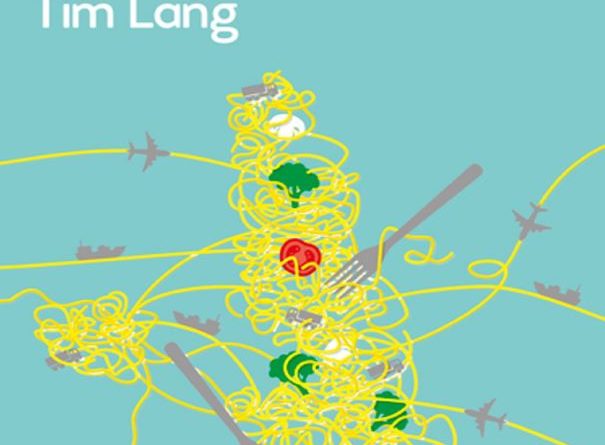Feeding Britain – Book Alert
Around the time that the great pandemic was starting to be taken seriously in Britain (March 2020), a book was published which everyone who regularly eats food in Britain should read. It is about the state of supply, security and quality of our food. In 2020 perhaps most comfortably off people in Britain take food completely for granted, but Professor Lang lays out the case with great care, vigour and rigour that the solidity and effectiveness of the British food system is an illusion, and one that could be revealed by what happens after Brexit officially begins to bite on New Year’s Day, 2021. It has already taken a jolt from the onset of the pandemic, but whether this reveals cracks in the foundations or is triumphantly paraded by those in power as a demonstration of the security and superiority of a just-in-time, free-market food system, we do not know yet.
Brtain has been here before, especially in the run up to both of the World Wars. Powerful and well researched reports before both wars demonstrated that Britain would not be able to feed itself if there were any serious or prolonged interruption to incoming colonial food supplies. Some notice as taken for the First World War, but the dangers were largely ignored before the second. Lang shows that this is a pattern in Britain and warning signs are once again being ignored now. As is now known, Coronavirus is far more lethal in those who are overweight or obese, but long before this being too heavy is known to be linked to a host of unpleasant health conditions. Despite this, the problem has just got worse and worse.
The reasons are not accidental, not trivial, and not just a problem of individuals unable to control their appetites. In fact, almost the entire British food system is designed to make people eat too much and eat food which is bad for the body. Lang lays out both the landscape and the history of the position we are now in and points to the way in which so many other aspects of consumerist life and economics reinforces and locks in bad food, bad agricultural policy, abuse and waste of the land, and an extraordinarily over-extended and unwise web of food imports.
A topic as important as this and a book which is well over five hundred pages long cannot be condensed into a few paragraphs – would that it could. Therefore, I as re-read the book in the coming weeks, I will add a series of book notes and parallel articles with the express aim of trying to highlight the most salient facts, actions and policy suggestions. I believe that Lang already delayed the book once so as to take account of Brexit. How ironic that it should come out at the moment that another huge, probably much larger, disturbance was just beginning. Because of this, there are now opportunities to extend and adapt Lang’s suggestions. Also, there are two areas which Professor Lang avoided almost completely, but which are of the profoundest importance, one in terms of explanation the systemic binds and lockins that one finds everywhere in the food system, and something that many ordinary people could that would go at least part of the way towards addressing the problems of insecure imports and dangerous industrially processed food.
Those items are, firstly that it is the economic system itself which is underlying driver of unhealthy food – unhealthy for both humans and nature. Secondly, anyone who can, should try to grow at least a little bit of food themselves or help someone else in a meaningful way. It is clear from the text that Professor Lang thinks that right-wing governments have done an even worse job with food policy and systems than centrists administration, but he never overtly impugns the essence of the capitalist system itself, despite pointing out many market failures and negative forces of neoliberalism. It may be that he feels readers are not yet ready for such critique.
As to why actually growing any of your own food yourself is never mentioned, even though I have read every page and noted every citation, I can offer no insight. As my notes on this book progress, I shall offer ideas for self production where they might be plausible, sensible and helpful. These will at first be limited to the difficult growing environment of Britain, but will later include other climes and biomes.
In the meantime, I urge everyone to read this book and take its data, analysis, arguments and suggestions as seriously as they are now taking coronavirus.

